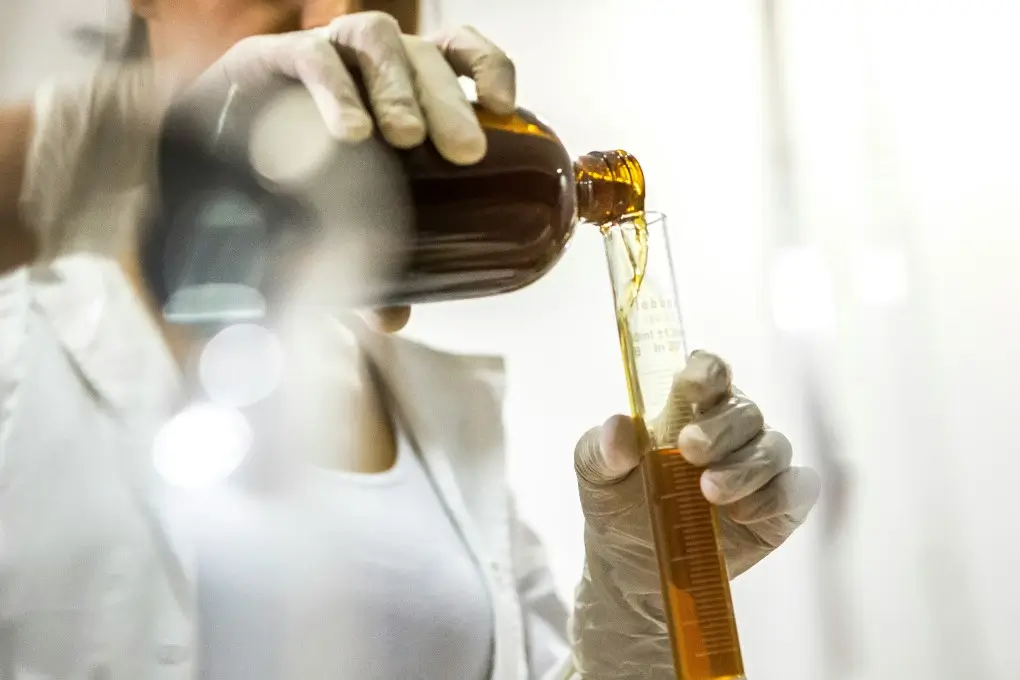Full Spectrum Cannabidiol (CBD) and Broad Spectrum CBD are two distinct types of CBD extract with notable differences in their compositions and potential benefits. Understanding these differences is crucial for consumers seeking the most suitable CBD product for their individual needs.
What is Full Spectrum CBD?
Full-spectrum CBD oil is renowned for its comprehensive blend of naturally occurring compounds derived from the cannabis plant. These compounds include cannabinoids, terpenes, and flavonoids, each playing a unique role in the therapeutic effects of the oil.
- Cannabinoids: While CBD stands as the primary cannabinoid in full-spectrum oils, the cannabis plant produces over 100 other cannabinoids, including CBG, CBC, and CBN. These minor cannabinoids, though present in relatively small amounts, are believed to contribute to the overall therapeutic potential of the oil.
- Terpenes: With over 200 different terpenes found in cannabis, each boasting its own distinct aroma and potential health benefits, terpenes are integral to the characteristic scent of cannabis. Moreover, terpenes interact with cannabinoids like CBD and THC to modulate their effects, potentially enhancing the overall therapeutic profile of the oil.
- Flavonoids: Flavonoids, another class of compounds found in cannabis, offer antioxidant and anti-inflammatory properties. Working synergistically with cannabinoids and terpenes, flavonoids contribute to the entourage effect, amplifying the therapeutic benefits of full-spectrum CBD oil.
The entourage effect is a widely studied phenomenon in which the various compounds present in cannabis interact synergistically to enhance each other’s therapeutic effects, potentially maximizing the overall efficacy of the oil.
What is Broad Spectrum CBD?
Broad-spectrum CBD, on the other hand, offers many of the same benefits as full-spectrum CBD but without any detectable THC. During the extraction process, THC and other unwanted compounds are meticulously removed, leaving behind a THC-free product.
- Extraction Process: Broad-spectrum CBD can be produced through various methods. One common approach involves starting with CBD isolate and then reintroducing other beneficial cannabinoids, terpenes, and flavonoids, excluding THC. Alternatively, a full-spectrum extract can undergo refinement to eliminate all traces of THC while preserving other desirable compounds.
Broad-spectrum CBD is particularly appealing to individuals who cannot or prefer not to consume THC due to legal restrictions, workplace policies, personal preferences, or concerns about psychoactive effects.
How to choose the right CBD product?
When selecting a CBD product, it’s imperative to consider your specific needs, preferences, and any relevant regulations. Whether you opt for full-spectrum or broad-spectrum CBD, it’s crucial to ensure that the product is rigorously tested and accurately labelled to verify its cannabinoid content and purity.
Here are some factors to consider when deciding which type of CBD is right for you:
- THC Sensitivity: If you are sensitive to THC or want to avoid it entirely due to legal restrictions, workplace policies, or personal preferences, broad spectrum CBD may be the better option. Broad spectrum CBD products contain all the beneficial compounds of the cannabis plant except THC, offering the entourage effect without the risk of THC ingestion.
- Entourage Effect: Consider whether you want to experience the entourage effect, which refers to the synergistic interaction between cannabinoids, terpenes, and other compounds in the cannabis plant. Full spectrum CBD products contain a wide range of cannabinoids, terpenes, and flavonoids, potentially enhancing the therapeutic benefits compared to CBD isolate or broad spectrum CBD.
- Drug Testing: If you are subject to drug testing for work or sports participation and cannot risk testing positive for THC, broad spectrum CBD is a safer choice. While full spectrum CBD products contain only trace amounts of THC (0.3% or less), there is still a slight risk of THC accumulation over time, especially with regular use.
- Legal Considerations: Understand the legal status of THC and CBD in your region. In some areas, THC is strictly regulated or prohibited, while CBD may be more readily available. Broad spectrum CBD ensures compliance with THC restrictions while still offering the potential benefits of other cannabinoids and terpenes.
- Personal Preferences: Consider your personal preferences regarding the effects and characteristics of CBD products. Some individuals may prefer the comprehensive profile of full spectrum CBD, appreciating its potential entourage effects and holistic benefits. Others may prefer the reassurance of THC-free broad spectrum CBD, especially if they have concerns about psychoactive effects or drug testing.
At Zamalia Experience, we take pride in offering a diverse range of Full-Spectrum and Broad-Spectrum CBD products, meticulously tested to ensure their quality and cannabinoid profiles. Our knowledgeable team is readily available to assist you in selecting the ideal CBD solution tailored to your individual requirements. Please don’t hesitate to reach out to us for more information or guidance on choosing the right CBD product for you.




